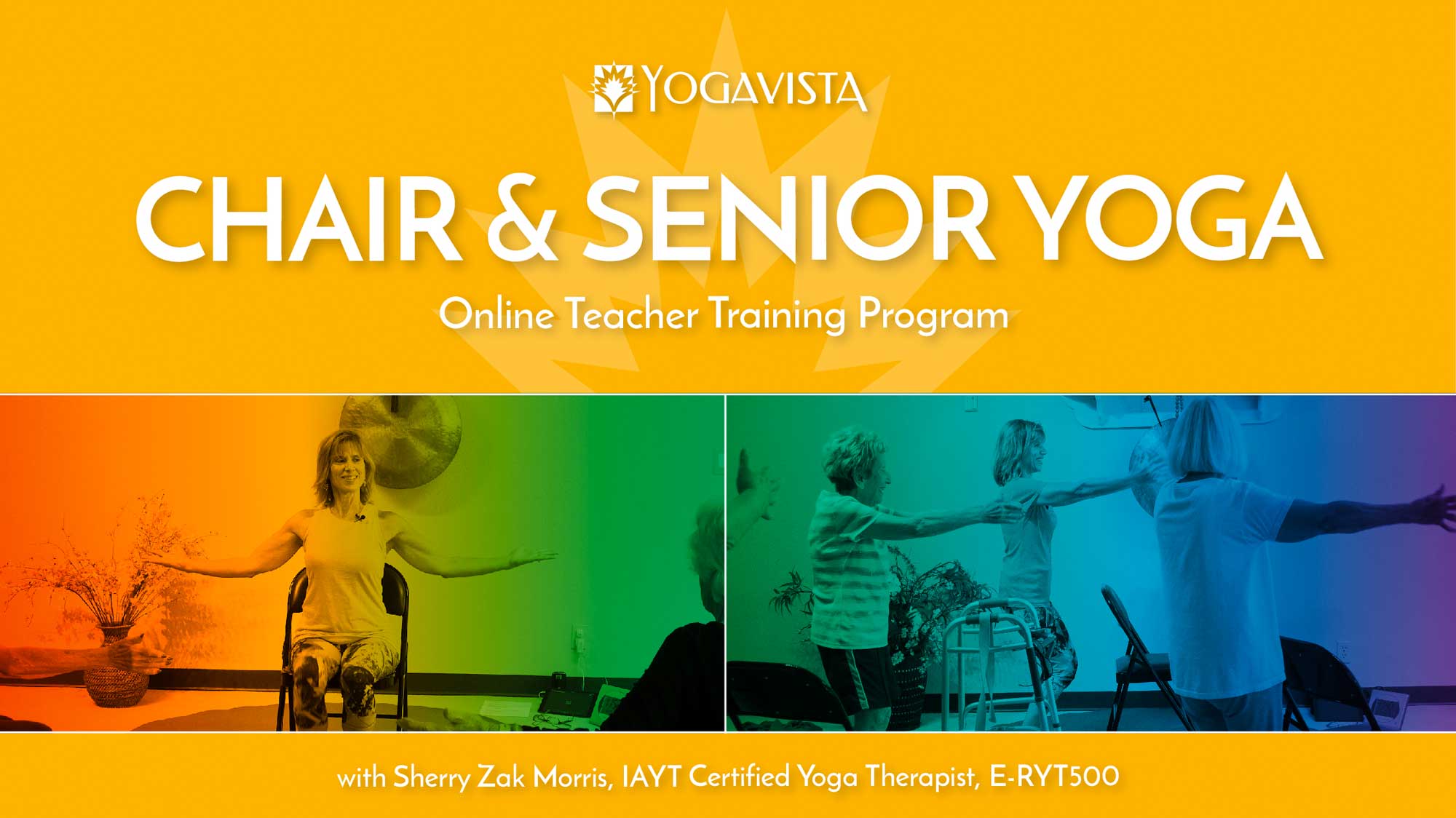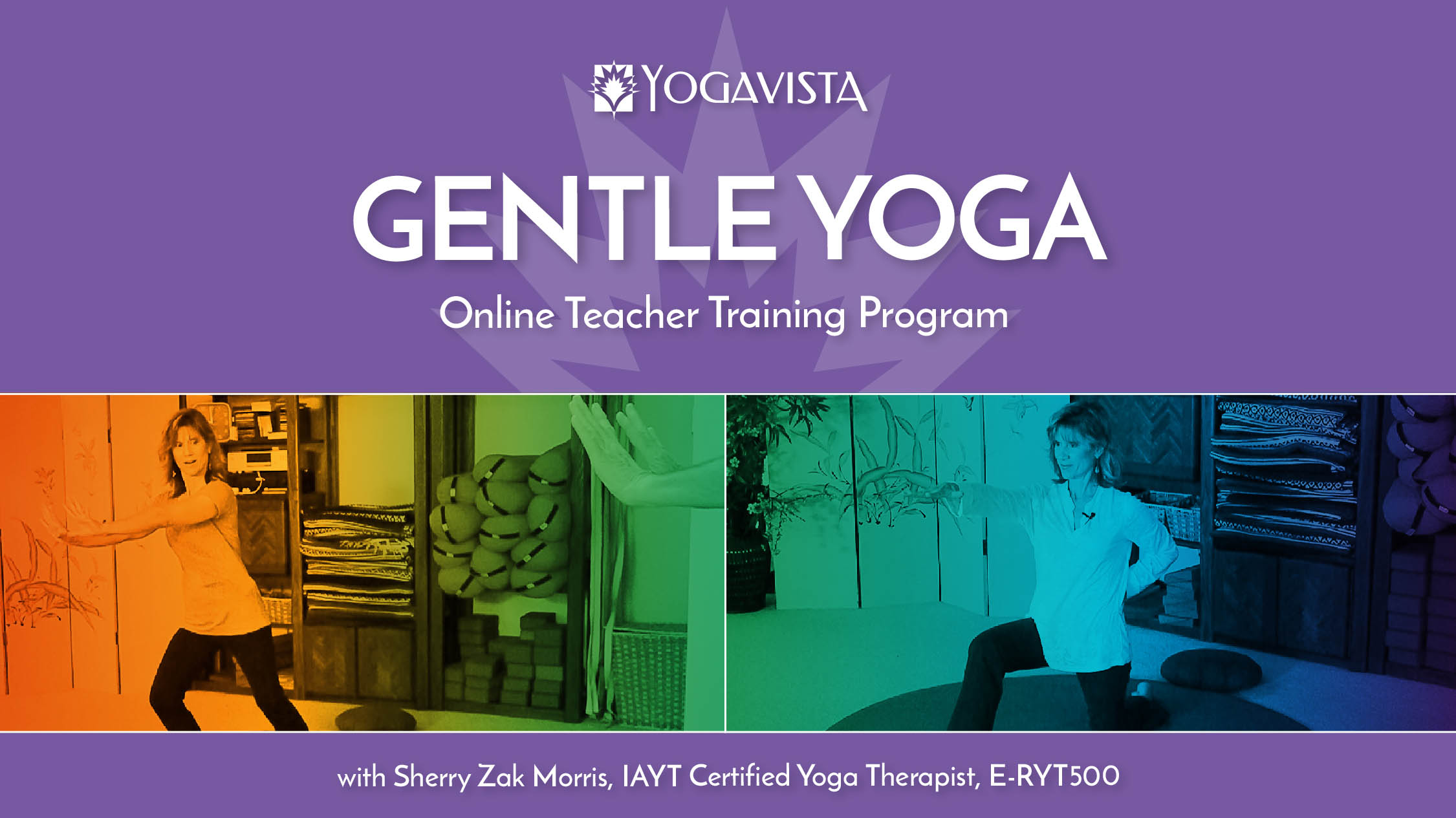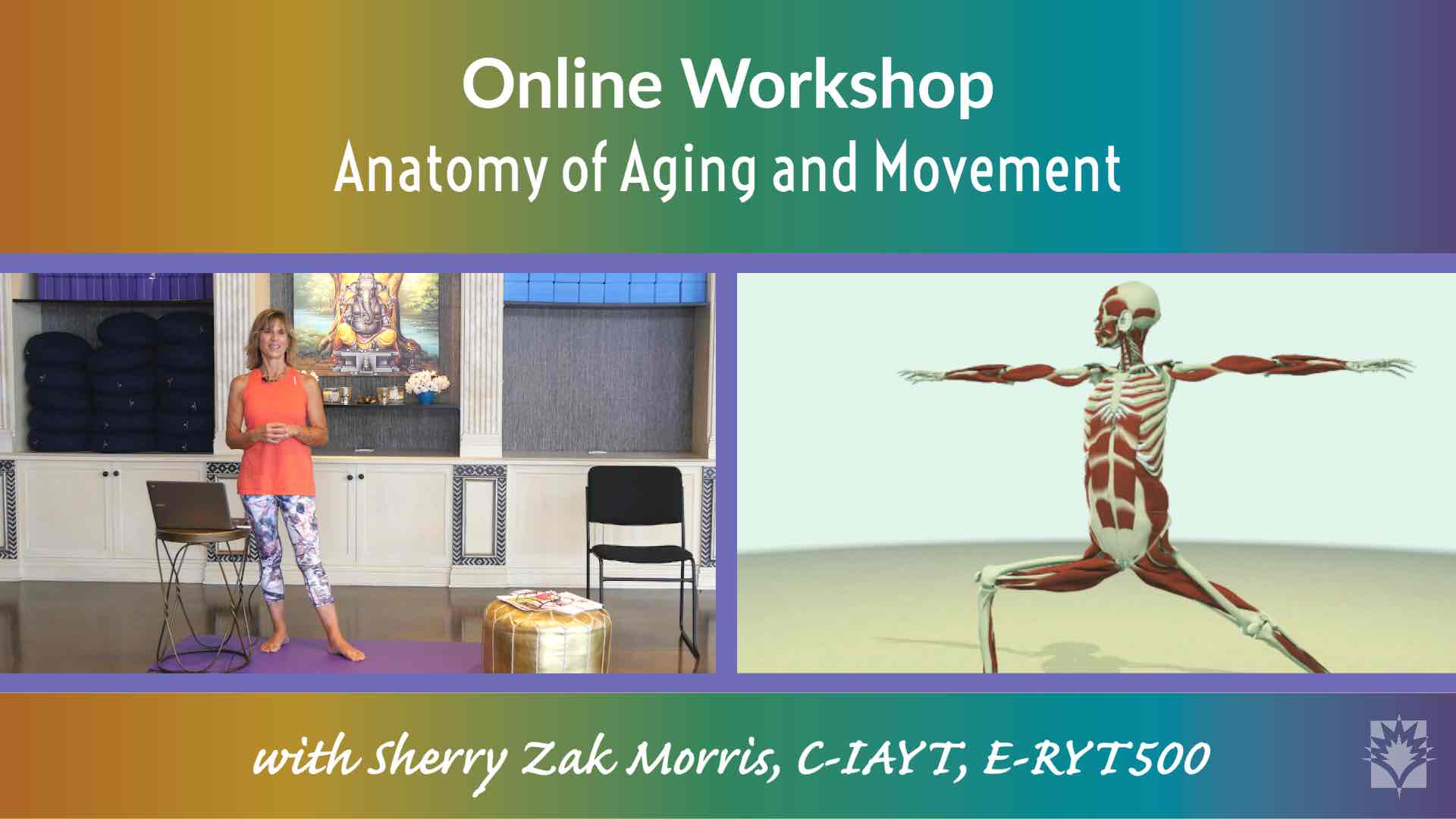
Course Description
20 Hour Online Course and associated 400-page Reference Manual that documents an anatomical approach to using Yoga practices to improve health outcomes in the 50+ demographic.
This Comprehensive Course is the foundation of understanding how the body works and changes as it ages. It will be an important tool in your arsenal for your own personal health knowledge, as well as working with Gentle, Senior and Chair Yoga Students.
This Course is not your typical bones, muscles and memorization format that you may have taken in School, your Yoga Teacher Training or Health Career Training. But rather, it is focused on the Anatomy of Aging and Movement, and how Yoga can support and be modified to accommodate the aging body.
An in-depth exploration of the 7 Main Body sections and what happens to each in the aging process.
- Dive into your Body’s Anatomy and learn about common injuries and conditions
- Learn Adaptive Yoga Poses and Sequences that will support and help remedy many conditions
- Downloadable 400-page “Anatomy of Aging and Movement” Reference Manual with detailed Pose illustrations and instructions
- Large Video Library of Teaching Strategies that enable you to learn how to share this information with a lay person
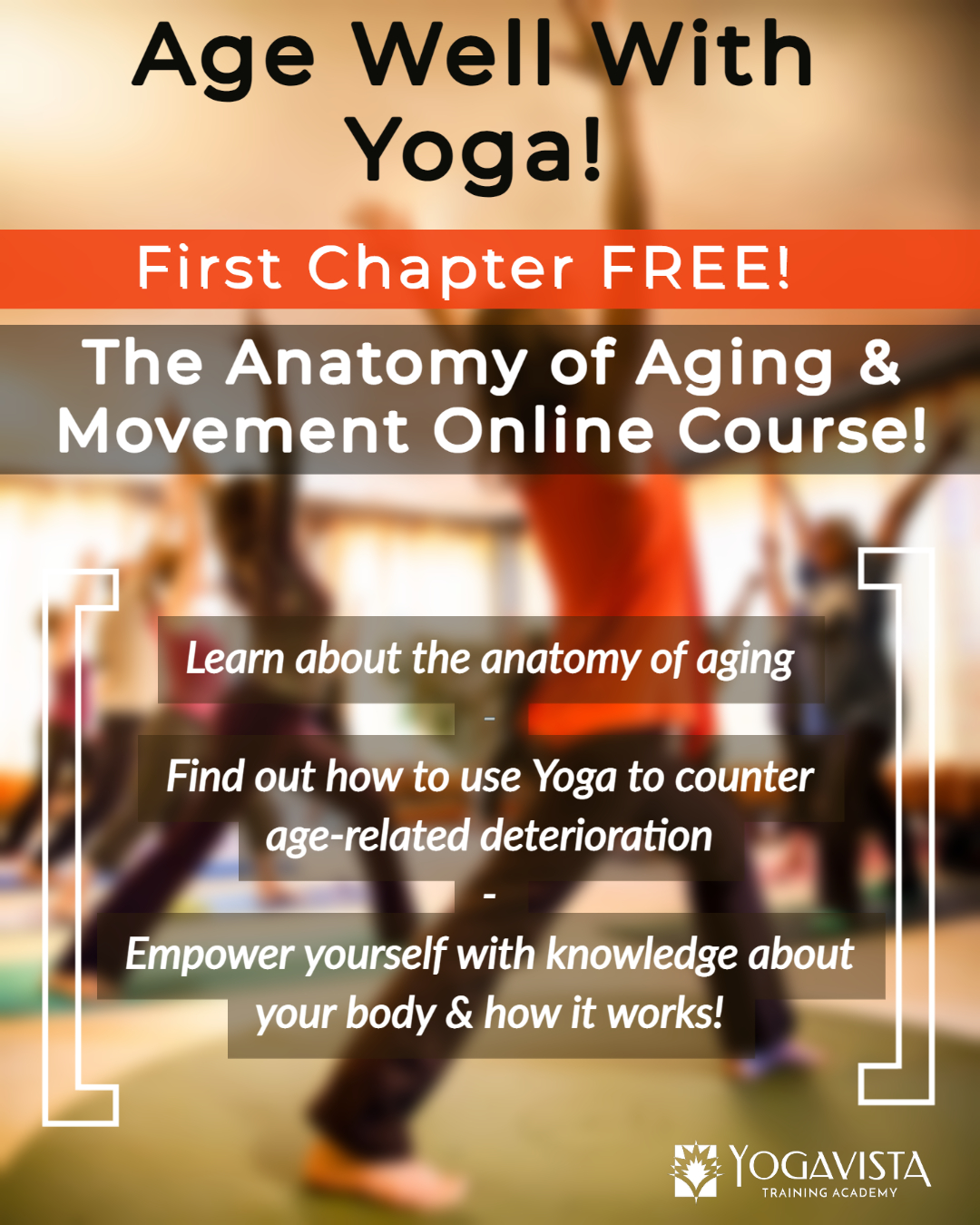
Enroll Now with our 3 Easy Payment Options
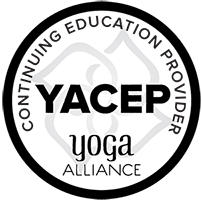

Course Structure
Part 1 – The Aging of our Structure
In this Section, we look through the lens of our bodies as we age. My intent in sharing the following information is three-fold:
- Look at our physical bodies as we age and what “common” things occur that we universally share as human beings
- Investigate how we can prevent some of these conditions and/or symptoms with knowledge
- Learn how we can possibly improve or correct some conditions that have already manifested in our bodies and/or the bodies of our students.
We will cover the structural changes that occur with aging, mostly to our skeleton and the muscles that support it. These changes we can see in the posture and gait (walking pattern) of our students. We will cover what happens to these structures as we age, and what we can do in a Chair Yoga practice to counteract these changes, or diminish their progression.
Part 2 – Anatomy of Aging and Movement
This Section is organized by anatomical area and contains three subsections for each area of the body starting from the Head and Neck and ending with the Legs and Feet, and everything in between. Each Anatomical Area will be explored in detailed as follows:
- Anatomy
- Injuries and Conditions
- Video Library
| Module 1 | Anatomy of Aging | |
|---|---|---|
| Unit 1 | Intro Video: Anatomy of Aging with Sherry Zak Morris | |
| Unit 2 | Aging of our Structure | |
| Unit 3 | Video 1: Anatomy of Aging – Exploring our Structure Through Movement | |
| Unit 4 | Video 2: Anatomy of Aging – Common Conditions of Aging | |
| Unit 5 | Test: Aging of our Structure | |
| Module 2 | Head and Neck | |
| Unit 1 | Anatomy: Head and Neck | |
| Unit 2 | Issues and Conditions: Head and Neck | |
| Unit 3 | Pose Library: Head and Neck | |
| Unit 4 | Video Library : Head and Neck | |
| Unit 5 | Test: Head and Neck | |
| Module 3 | Shoulders | |
| Unit 1 | Anatomy: Shoulders | |
| Unit 2 | Issues and Conditions: Shoulders | |
| Unit 3 | Pose Library: Shoulders | |
| Unit 4 | Video Library: Shoulders | |
| Unit 5 | Test: The Shoulders | |
| Module 4 | Arms, Hands and Fingers | |
| Unit 1 | Anatomy: Arms, Hands and Fingers | |
| Unit 2 | Issues and Conditions: Arms, Hands and Fingers | |
| Unit 3 | Pose Library: Arms, Hands and Fingers | |
| Unit 4 | Video Library: Arms, Hands and Fingers | |
| Unit 5 | Test: Arms and Hands | |
| Module 5 | The Spine | |
| Unit 1 | Anatomy: The Spine | |
| Unit 2 | Issues and Conditions: The Spine | |
| Unit 3 | Pose Library: The Spine | |
| Unit 4 | Video Library: The Spine | |
| Unit 5 | Video Library: The Core | |
| Unit 6 | Test: The Spine | |
| Module 6 | Hips and Pelvic Girdle | |
| Unit 1 | Anatomy: Hips and Pelvic Girdle | |
| Unit 2 | Issues and Conditions: The Hips and Pelvic Girdle | |
| Unit 3 | Pose Library: The Hips and Pelvic Girdle | |
| Unit 4 | Video Library: The Hips and Pelvic Girdle | |
| Unit 5 | Test: The Hips and Pelvic Girdle | |
| Module 7 | Legs and Feet | |
| Unit 1 | Anatomy: Legs and Feet | |
| Unit 2 | Issues and Conditions: Legs and Feet | |
| Unit 3 | Pose Library: Legs and Feet | |
| Unit 4 | Video Library: Legs and Feet | |
| Unit 5 | Test: Legs and Feet | |
| Module 8 | Aging Well with Yoga | |
| Unit 1 | Parting Comments | |
| Unit 2 | CEU Breakdown for the Anatomy of Aging |
More Information
Sneak Preview
Our hip flexors are our gait muscles. They help propel us forward with every step we take. The tighter these muscles, the shorter our walking gait can become. That can lead to tentative movements and more trips and falls. Many of the hip muscles are responsible for more than one type of movement in the hip, as different areas of the muscle act on tendons in different ways. When we do specific Yoga poses and sequences, we are targeting specific muscle groupings for a particular purpose. Find out why the iliopsoas muscles (aka hip flexors) muscles are important for keeping you walking tall and with confidence! Enjoy these few stretches that will help keep them lengthened and healthy.
Online Yoga Teacher Training Programs and Certifications
Many of you have seen our educational videos on our Yoga Vista Academy YouTube Channel and YogaJP YouTube Channel where we share our knowledge, expertise and creative teaching methodologies. Our Online Certification and Specialty Programs are designed to immerse you into the Advanced teachings in a multi-learning modality environment.
Each Program requires that you pass a Final Exam and share with us a Teachback Class to ensure you have absorbed, assimilated and can teach the course material.
Testimonials
I finished the Anatomy Section of the training. I just…. I have no words for how amazing it is. I’m working on formulating a review of this program. It’s just…. well. I’m sure you know. My confidence has increased. When I teach my yoga classes, I actually feel as if I KNOW WHAT I’M TALKING ABOUT! Not just repeating something I learned. That’s what’s amazing about this. The understanding that lies underneath her teaching. I’ve been yearning for something in yoga… something I couldn’t explain or even understand. But now I know. I just needed the answer to the question WHY. Now I know so many more answers to why we teach what we teach in yoga… why we do certain movements in certain ways. Even my students have noticed a difference.
Each unit had a fully color detailed handout, easy to follow videos and an abundant of yoga pose library to suit each body part or a personal injury or condition. I especially loved the Anatomy so much fantastic information and illustrations throughout.
I found this course to be well designed/formatted and very comprehensive. It flowed nicely from one area of the body to the next. The Anatomy section was very detailed, and loved learning about the mechanical aspects of the human body. The Conditions sections associated with the different areas of the body answered a lot of questions I already had about working safely with a wide variety of ailments that seniors may be experiencing. The Poses section was filled with great step by step information, which gave me confidence, ensuring I was delivering the information to the class appropriately.
The videos were a fun and inspirational part of the class, seeing various members of the Yoga Vista Community sharing their knowledge.
I was prepared to take human anatomy at my local community college as an enrichment to my yoga teacher training, but the anatomy of the aging body is more than I would have had. I wanted to know the how’s and why’s of aging. These are the tools that allow me in depth understanding and compassion for Seniors and for those with limited mobility. The medical names are important to know, and are delivered in such a way that I remember terms and how they fit into my daily work of teaching chair yoga. I’m not going to just read and take a test, I’m retaining so much of what I am learning, and applying it. Your program has so many pictures, sequencing, cue tips, and practical helps. It just goes on and on.


